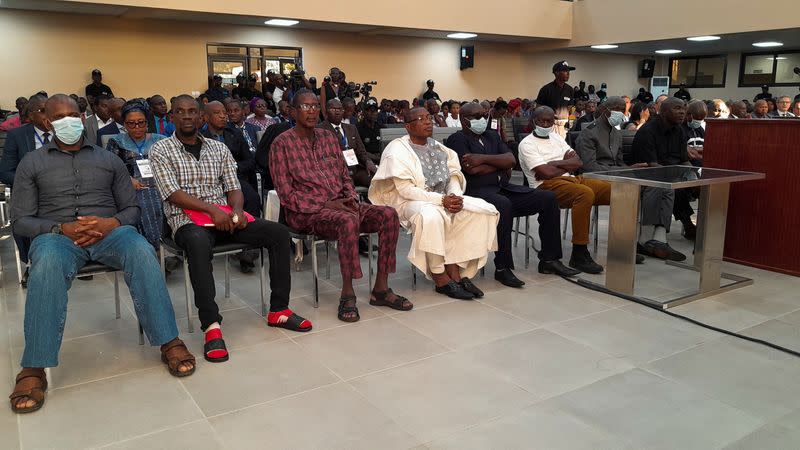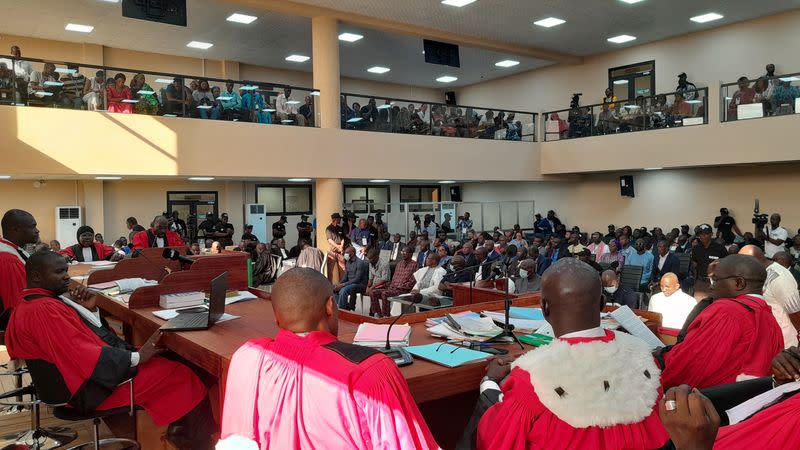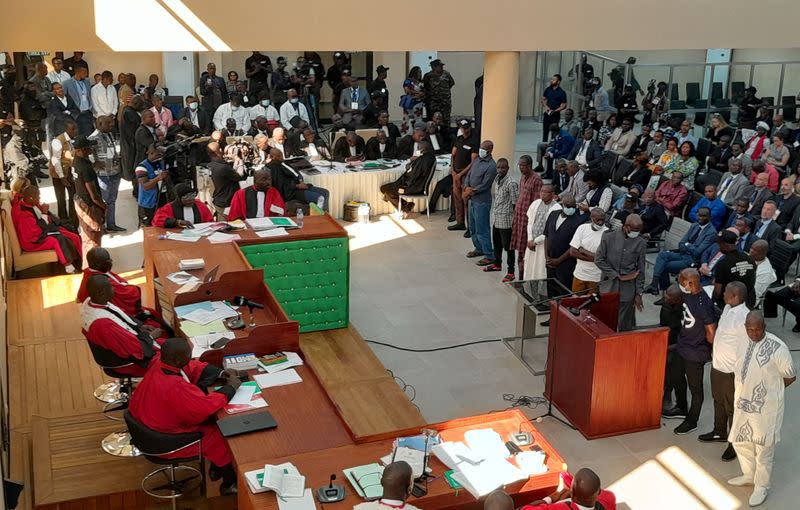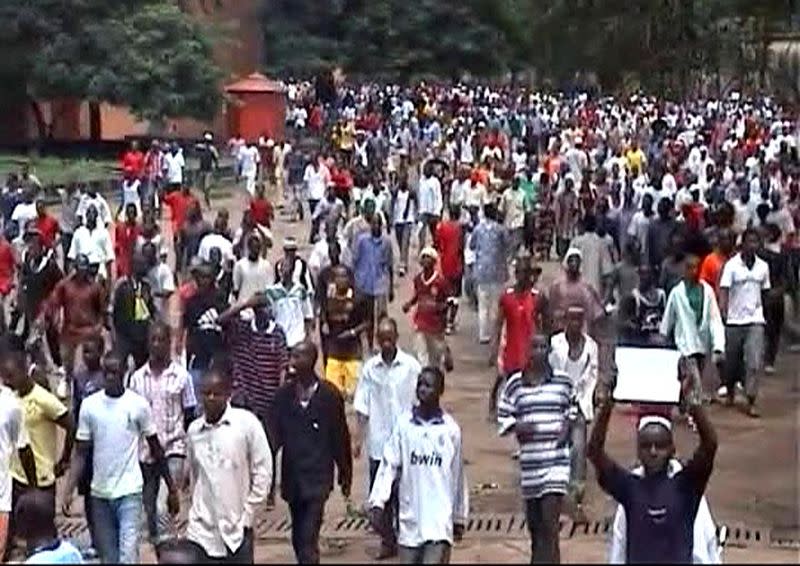Trial over Guinea 2009 stadium massacre begins as victims hope for justice
- Oops!Something went wrong.Please try again later.
By Saliou Samb
DAKAR (Reuters) -A long-awaited trial of eleven men, including former military ruler Moussa Dadis Camara, accused of responsibility for a 2009 stadium massacre and mass rape by Guinean security forces began on Wednesday but was adjourned by the judge to next week.
The trial opened with the judge calling each accused to the bar. Charges including murder, attempted murder, rape, torture and theft were read out in the packed courtroom and broadcast live on national television.
The men were not asked to plead and the judge adjourned the case to Oct. 4 following a request from lawyers of the victims and the accused, to give them enough time to familiarise themselves with the charge sheets.
On Sept. 28, 2009, tens of thousands of pro-democracy demonstrators held a protest in the stadium in Conakry to pressure Camara not to stand for election as president of Guinea the following year. Many were shot, stabbed, beaten or crushed in a stampede as security forces fired teargas and charged the crowded stadium.
Over 150 people were killed and at least a dozen women were raped by security forces, prosecutors say.
Camara has denied responsibility for the incident, blaming it on errant soldiers, including his former aide-de-camp Lieutenant Aboubacar Toumba Diakite, who is also among those indicted and has also denied responsibility.
Survivors and family members hope the trial will bring them justice after 13 years.
Asmaou Diallo said she was at the protest. She told Reuters in an interview that she was assaulted and barely escaped with her life, and that her son was killed in front of her.
"The most shocking image for me that day was that of the body of my slain son. I still haven't processed what happened," said Diallo, who now heads an association of parents and victims of the massacre.
"Knowing that this trial will take place is for all the victims the beginning of hope for deliverance," she said.
After prolonged investigations and repeated delays by the previous government, the military government that seized power in September last year gave an order that the trial should start no later than Sept. 28, the anniversary of the massacre.
"Today's opening of this long-awaited judicial process is a crucial step for Guinea in its fight against impunity," said Acting United Nations High Commissioner for Human Rights, Nada Al-Nashif.
"We call on all the authorities involved to ensure that this important trial is conducted in a victim-sensitive manner, and in accordance with international standards and due process."
Camara, who was in exile in Burkina Faso following an attempted assassination and his ouster in 2009, returned to Guinea over the weekend.
He was interviewed by a prosecutor and detained on Tuesday alongside two other former senior military officers, their lawyer said.
At least 600 victims of the stadium incident have been identified, according to Alseny Sall, spokesperson for the Guinean Organization for Human Rights.
Some relatives of those killed have said they never received their loved ones' remains.
"The hardest thing for me was not being able to mourn my husband. His body disappeared and was never returned to us. It's a situation that weighs on me," said Salimatou Bah, a rice seller.
"All we want is justice. This trial must ensure that such things never happen again in this country," she said.
(Reporting by Saliou Samb Writing by Bate FelixEditing by Nellie Peyton and Rosalba O'Brien)




